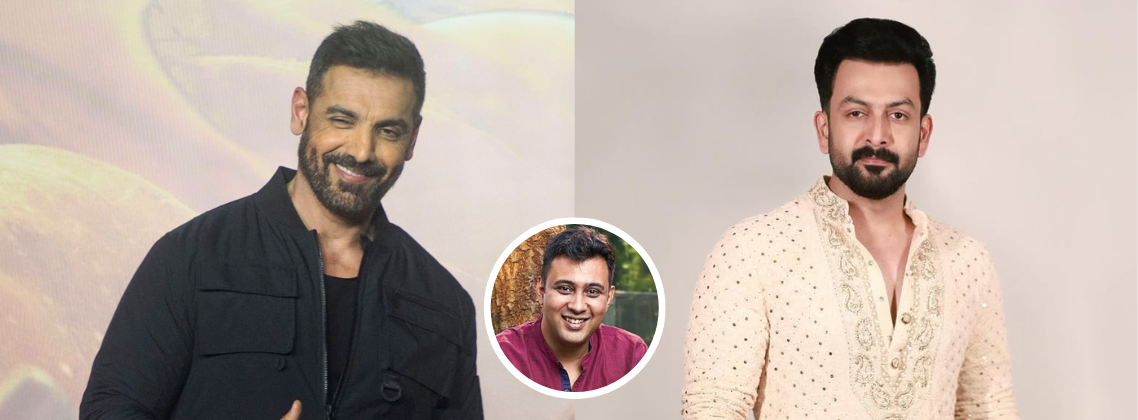Abhishek Kapoor has delivered a masterpiece once again. The director's recent film, Chandigarh Kare Aashiqui, starring Ayushmann Khurrana and Vaani Kapoor opened at theatres on December 10 with rave reviews from critics, audience and Bollywood stars. The 'mind-bending love story' is the talk of the town for tackling an important subject with sensitivity and a dash of humour.
As the world is loving Ayushmann and Vaani's Aashiqui, Abhishek spoke to PeepingMoon exclusively about making Chandigarh Kare Aashiqui, starting a conversation on the trans community and why the sensitive story had to be told without compromising on the laughs.
Excerpts from the interview:
.jpg)
Chandigarh Kare Aashiqui is an unusual and brave film. When and how did you come up with this concept of a Jatt boy falling in love with a trans woman?
Chandigarh Kare Aashiqui has a delicate subject. It talks about a community that is sidelined by society. The subject had to be handled with care. In the past, I have done films on sports, politics, music etc, so I thought this is the best combination to put an important story forth.
Due to a lack of representation of the trans community in Hindi cinema, there was a debate around the fact that you didn’t rope in a trans writer for the film. Did they play a key role behind the scenes?
Simran Sahni, the writer of Chandigarh Kare Aashiqui, shared this idea with me in 2017. It was before Kedarnath's release. After Kedarnath, the idea was still simmering in my mind and I wanted to address it. Tushar Paranjpe and I met many trans people and did a lot of research. Only after understanding the subject material, we decided to get into it. While working on the film, I learnt a lot from the trans community.
.jpg)
You took a rather bold step by choosing a trans woman and a straight boy. Did it bother you that the audience will not accept this narrative?
We cannot wait for the change to come. We have to initiate a conversation and talk to them in the language they understand. That’s how I wanted to package the film otherwise such a subject could have been tackled in a darker way. If I can initiate a conversation and open the door of communication, I think the mission is accomplished.
You chose to tell a sensitive story with a dash of humour. Why? Is humour the only way to tell such a story to ensure the audience resonates with it?
That’s not the only way to do it. Every filmmaker has a different approach. But in my vision, I thought this is the best way.
.jpg)
The sex or gender reassignment surgery was represented graphically in Chandigarh Kare Aashiqui. That's something unusual for the Indian audience...
I didn't make it for the 'Indian audience'. It is the journey of realisation for many people. As a society, we never imagined that COVID-19 would force us to stay at home and the world could come to a halt. Nobody imagined but it did happen. It has put us in a position where we need to recalibrate our thoughts, understand what's right and what's not, what are the changes we can bring to the planet and the world at large; whether it is the environment or inclusivity of people who were not accepted in the society. This is the right time as people are thinking about what’s right and what’s not. This is the right time to start the conversation and I have done what I had to do.






.png)
.png)
-(1).png)
.png)
.png)